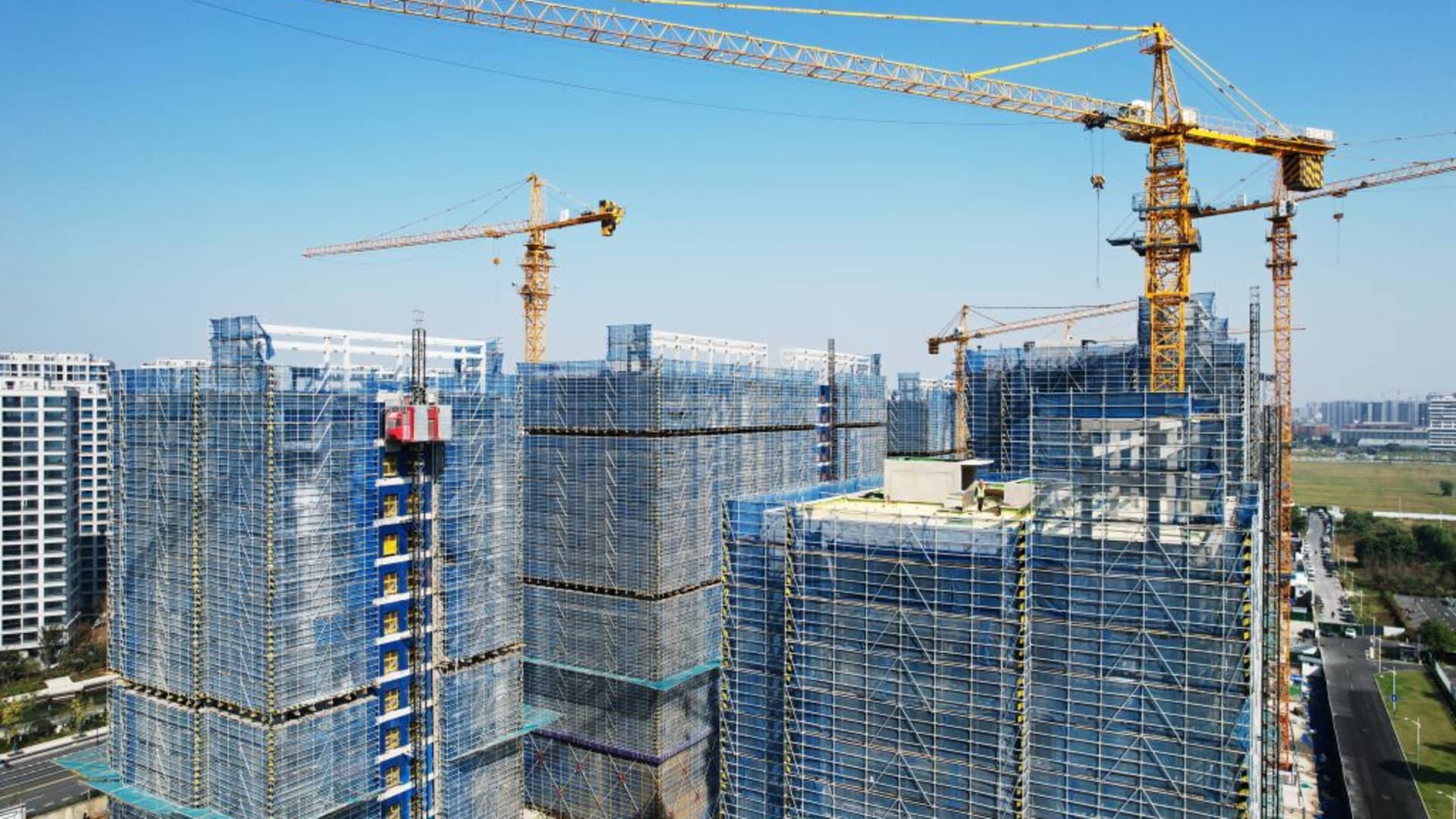Products You May Like
BEIJING — The size of unfinished, pre-sold homes in China is about 20 times the size of property developer Country Garden as of the end of 2022, according to a Nomura report on Wednesday.
Country Garden has been the largest non-state-owned developer in China by sales. It ran into financing troubles this year, and defaulted on a U.S. dollar bond last month, according to Bloomberg News.
“We estimate that there are around 20 million units of unconstructed and delayed pre-sold homes,” said Nomura’s Chief China Economist Ting Lu and a team.
About 3.2 trillion yuan ($440 billion) is needed to complete those remaining units, according to the analysts’ estimates.
Apartments in China are typically sold ahead of completion. Ensuring construction of the homes has been a government priority since delays make people less willing to buy new apartments.
At some point next year, the issue of home delivery could turn into a social issue and endanger social stability, and Beijing may eventually need to significantly ramp up policy support.Nomura
“In our view, amid the collapsing property sector and widespread credit fallout among property developers, home buyers might get increasingly impatient while waiting for the delivery of their purchased new homes,” the Nomura report said.
“At some point next year, the issue of home delivery could turn into a social issue and endanger social stability, and Beijing may eventually need to significantly ramp up policy support,” the analysts said. “We see this as the key to truly restoring the confidence in the property sector and economy.”
Last year, many homebuyers in China decided not to pay their mortgages on property purchases due to long delays in construction. Developers have faced a financing crunch since Beijing’s crackdown in 2020 on their high reliance on debt. Covid-19 restrictions last year also made construction difficult.
“Assuming 20% volume growth in new home completions for the current year, developers will only manage to deliver 48% of the homes pre-sold between 2015 and 2020, leaving 52% still subject to delays,” the Nomura analysts said.
